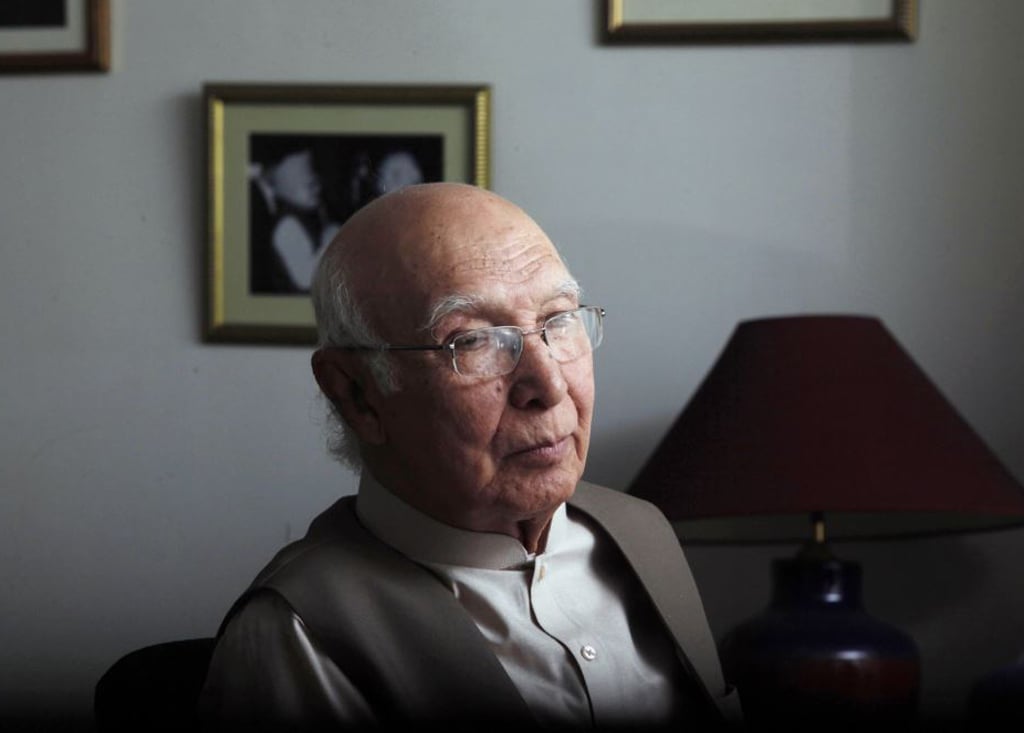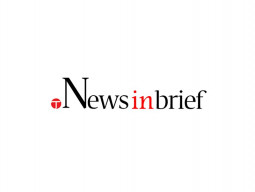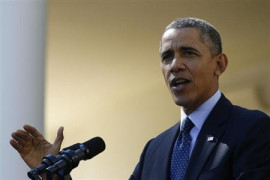
ISLAMABAD: As Indian pageantry welcomed the US president on his second visit to New Delhi, Pakistan expressed hope that President Barrack Obama’s visit would help reduce tension in South Asia.
These sentiments were expressed by Prime Minister’s Adviser on National Security and Foreign Affairs Sartaj Aziz, when he told journalists on Sunday that the ‘cherished goal of progress and prosperity in the region cannot be achieved without good relations between Pakistan and India.’
Obama, who was given an unprecedented welcome in New Delhi, is the first US president to visit India twice. His engagements during the three day visit are being watched closely in Islamabad, with officials hoping that the American President would raise the issue of unprovoked firing by Indian forces along the Line of Control (LoC) and Working Boundary.
They also expect the US leader to persuade Indian Prime Minister Narendra Modi to resume the stalled peace process with neighboring Pakistan. Islamabad has blamed New Delhi for the ceasefire violations along the LoC and working boundary in a bid to distract its security forces from the ongoing fight against terrorism.
A constant blame game and trust-deficit has prevented the two nuclear neighbors from normalizing bilateral ties despite a promising start last year when Pakistani Prime Minister Nawaz Sharif attended the swearing-in ceremony of Narendra Modi.
Aziz told reporters that during his recent visit to Islamabad, US Secretary of State John Kerry was apprised of Pakistan’s reservations on various issues including Indian aggression along the LoC.
During a joint news conference in New Delhi, Indian Prime Minister indirectly referred to Pakistan when he said ‘every country has a responsibility to fight terrorist without any discrimination.’
However, the US President avoided making any direct or indirect reference to Pakistan during the news conference.
This suggests that while the US is keen to improve ties with India, it is equally aware of the importance of Pakistan in the region, commented a government official, who asked to remain anonymous.
Published in The Express Tribune, January 26th, 2015.
COMMENTS (17)
Comments are moderated and generally will be posted if they are on-topic and not abusive.
For more information, please see our Comments FAQ



































































@all Indian commentators: you, Sirs, are unaware of the 'real' reality. But some Pakistani readers are far more astute in reading the dots and connecting the tea-leaves (really, I mean it!).
Some of them kindly made the sensational disclosure that the real reason for Kerry and Ban Ki Moon visiting India near-simultaneously was to pummel the unrepentant Indian PM 'from both sides' (their terminology, not mine) to stop the LoC firing and start listening to Sir Taj Aziz like a good boy. Obviously then, if you connect the tea-leaves further, Obama is here to pummel Moody further if required.
Not convinced? OK, I'll give you another inside ki story - You remember the US spokesman said Obama not visiting Pakistan is good for all three countries? Now why did he say that? Confused? Arrey, that's because Modi is the one that has to be pummeled, and no one in Pakistan needs any pummeling, so Obama visiting India is good for Pakistan and Obama visiting Pakistan is bad for Pakistan.
Now I know what you'll ask - why did spokesman say Obama not visiting Pakistan is good for India? Actually, not visiting Pakistan is bad for India in the short-term as all the pummel supply will be dumped on Moody, but in the long-term this is good for India since Pakistan will not have to do the pummeling and that will keep India's fragile self-respect intact.
Samjhey?
Re: “However, the US President avoided making any direct or indirect reference to Pakistan during the news conference.” ++++++++++++ The Pakistan Prime Minister’s Adviser on National Security and Foreign Affairs, Mr. Sartaj Aziz seems to have missed the U.S.-India Joint Statement of the same day which said:
“41. The Leaders reaffirmed the need for joint and concerted efforts to disrupt entities such as Lashkar-e-Tayyiba, Jaish-e-Mohammad, D Company and the Haqqani Network, and agreed to continue ongoing efforts through the Homeland Security Dialogue as well as the next round of the U.S.-India Joint Working Group on Counter Terrorism in late 2015 to develop actionable elements of bilateral engagement. The two sides noted the recent U.S. sanctions against three D Company affiliates. The President and the Prime Minister further agreed to continue to work toward an agreement to share information on known and suspected terrorists. They also agreed to enter discussions to deepen collaboration on UN terrorist designations, and reiterated their call for Pakistan to bring the perpetrators of the November 2008 terrorist attack in Mumbai to justice.”
Refer here:
http://www.whitehouse.gov/the-press-office/2015/01/25/us-india-joint-statement-shared-effort-progress-all
Mr. Aziz has also missed what US President Barack Obama had to say to India Today’s Shekhar Gupta in an interview datelined Jan 22, 2015. That comment which was pretty explicit about Pakistan’s fomenting of Islamic Terrorism, should require no further direct or indirect amplification for quite some time. The comment by US President Barack Obama follows:
“I've made it clear that even as the United States works with Pakistan to meet the threat of terrorism, safe havens within Pakistan are not acceptable and that those behind the Mumbai terrorist attack must face justice.”
Refer here: http://indiatoday.intoday.in/story/barack-obama-shekhar-gupta-exclusive-interview/1/414805.html
you guys are null & void...Keep day dreaming & imagination...
Those dealing in foreign affairs in Pakistan have the most difficult job to do as one must have a good enough memory to be a successful liar. Though Pakistan has almost perfected itself in the art of lying and issuing denials for several decades, but due to its poor track record nobody believes her anymore even if she spoke the truth.
The statement tantamount a thief asking the judge to punish the owner of the house who caught him committing burglaries several times but gave the thief a good thrashing on this occasion..
The people of Pakistan are undoubtedly be the world’s most selfless people.
They are ever willing to be concerned about “progress and prosperity in the region” even when they are faced with a fraught situation on the progress and prosperity front which has resulted in Pakistan having to go to the US, China, Saudi Arabia and IMF with a begging bowl.
Above must be an outcome of Pakistani trait of being ever willing to sacrifice for the protection of Muslims from alleged oppression anywhere in the world be it Kashmir, Gujarat, Kosovo, Myanmar or Palestine and all this support even at the cost of Muslim sects like the Shia and Ahmadi sect getting slaughtered for their religious beliefs in Pakistan. Why there is even an exception that proves this rule of selflessness and that is the Pakistani silence regards the slaughter of Uighur Muslims in Xinjiang at the behest of China. Indeed if the Crab Nebula, Betelgeuse or Aldebaran had Muslims, one could be sure that Pakistan will selflessly overlook the slaughter of Muslim sects in Pakistan and provide support against alleged oppression committed against Muslims there. So I guess Pakistan hankering for “progress and prosperity in the region” even in a time of great difficulty on those particular issues in Pakistan, is nothing unexpected.
@Sid: " Completely drained of sovereignty, self reliance and self respect." +++++++++++++++++++++++++++++++++++++++++ and alsoy drained of national pride, self esteem and sincerity.
Magnificent Delusion- Hussain Haqqani, Fmr. PAK Ambassador to the US. I always wondered what he meant, No more !
After Sec.Kerry's stop, PAK is rounding up 10,000 terrorists. That should shed some light about what went on that meetings.
The current PM should change his advisors. Some are hate speech writers, as per ET, and some are still living in the cave. This administration is not going to achieve anything with India.
The Indo-PAK strategic defense pact ( includes AFG) extended for next 10 years, that is two Elections in India, and the US, gives a very limited spectrum for PAK to operate.
The new found cooperation with Afg also tells its own story. PAK ventures outside of her borders are over.
Lets see if anything changes after this visit between India and Pakistan. Pakistan is a cry baby who likes to throw tantrum because others don't want to play ball with it. And then it goes to every elders and bully in the street to help it persuade others to play with it. Thats exactly how Pakistan has become. Completely drained of sovereignty, self reliance and self respect.
http://tribune.com.pk/story/827570/obamas-visit-pakistan-hopes-us-will-raise-issue-of-loc-violations/
Sri Varahadev
Re: ” cherished goal of progress and prosperity in the region cannot be achieved without good relations between Pakistan and India.”
Two points to be made regards the above comment made by Mr. Sartaj Aziz.
First Mr. Aziz should understand that “Progress and Prosperity in India” is India’s primary goal. “Progresss and Prosperity in the region” is for India a distant secondary affair. Pakistan, given the developmental quagmire she is in, would do well to pursue an Indian like goal of making “Progress and Prosperity in Pakistan” her primary goal and leaving “Progresss and Prosperity in the region” as a secondary one.
Second point that Mr. Aziz should understand is that India will achieve “Progress and Prosperity” based on the effectiveness or not of her efforts, irrespective of relations with Pakistan, just as the US emerged a superpower irrespective of relations with Germany, Japan or Russia, and just as Great Britain emerged a super power irrespective of relations with Spain and France.
Pakistan can neither materially help nor hinder India in the endeavour of achieving “Progress and Prosperity”. The dire economic straits resulting in Pakistan having to go to the IMF with cap in hand for a bailout and the puny GDP size relative to India, rule out help. Regards Pakistan’s hindrance capability, current blowback situation within Pakistan clearly shows that the price tag for hindering India is substantially higher for Pakistan herself.
The frequency with which the specious argument that Pakistan has some sort of veto power over India’s progress and prosperity leads me to wonder if this is a case of Pakistan’s Punjabi Military dominated Deep State coming to believe the same propaganda that they dish out to ordinary civilians in Pakistan!
As Prime Minister's adviser, Sartaj Aziz has failed to achieve the administration's desired results. Ego, the biggest detractor for any diplomat, has incapacitated his ability to continue the dialog with India. Basit, Pakistan's ambassador to India, had no business meeting with the Kashmiri separatists after the Indian government expressed its displeasure unambiguously at the continuation of such meetings. He should know how the Government of Pakistan would feel if an Indian diplomat were to routinely meet with the Baloch separatists.
One can clearly observe Mr. Aziz's desperation to get the stalled talks restarted. During his lectures across Pakistan, even at the most unrelated forums, he loses no opportunity to make indirect calls for India to resume negotiations, And, his desperation betrays his desire and weakness. India is in no hurry to engage in any talks that pertain to the Kashmir issue and for good reasons. It's a dispute in Pakistan's mind, not India's, so unless India is painstakingly pestered and cajoled to discuss the issue, it will show no interest in talking. If Pakistan wishes to get anywhere in this dispute, it will have to swallow the bitter pill, accede to India's per-conditions, and then hope that India will agree to meet.
When two largest democracies of the world come together and think of the world order and the future of the world ... What will they think about Pakistan ???? any imaginations ???
naivety of the national adviser or the the meet with the journalists was for domestic consumption.
Not making a direct or indirect reference to Pakistan is ignoring and snubbing and not "realizing the assumed importance" of Pakistan in the bilateral relationship between India and US. Except state sponcered terrorism by Pakistan (for which Pak is paying heavily but still to fight it with full heart), what more Pak can contribute ?? Social security issues between US and India, Nuclear deal, defence cooperation including tech tfr and co production, climate change, solar power generation etc etc are issues which are foremost in the mind of US and India and Pak has nothing to do with any of them.
Who writes these articles. ....Obama just scolded Pakistan two days ago that it's not doing enough against terrorism.... How in the woods can the auther take the comment seriously ..
"However, the US President avoided making any direct or indirect reference to Pakistan during the news conference. This suggests that while the US is keen to improve ties with India, it is equally aware of the importance of Pakistan in the region, "
Also we all know how much respect US have for Pakistan issues .... He does not even to visit you.
" This suggests that while the US is keen to improve ties with India, it is equally aware of the importance of Pakistan in the region" +++++++++++++++++++++++++++++++++++++++++++++++++++++ Dil ke behlane ko Ghalib yeh khyal achaa hai.